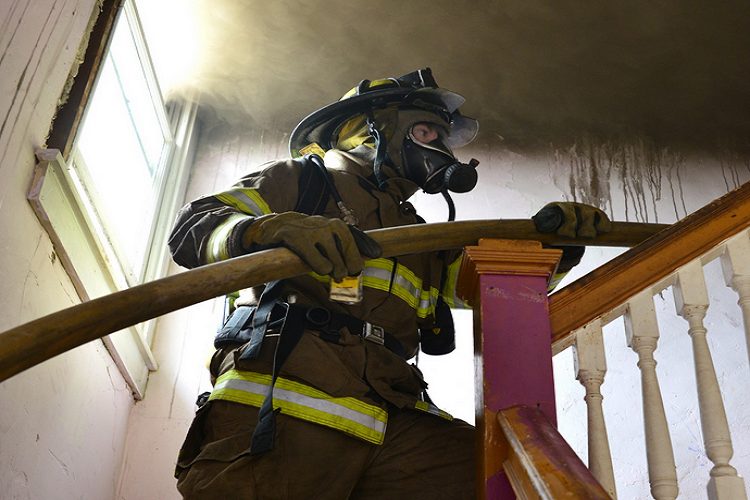
Building Success with Consistency
The fire service is a profession built on tradition, hesitant to change. Many of the things we do today are because “that’s the way we always did them.” From strategies and tactics to washing the wheels of the apparatus when backing into the station, we are rooted in the past. Although tradition and history are important, to improve our safety and services, we need to be willing to change within our organization.
In any organization, consistency can be the cause of stagnation but the goal of success. To take a deeper look, consistency depends on what area of the organization to which we are referring. For any organization, we need always to be reevaluating our operations and systems to improve. If we do not challenge the status quo, our operations will become obsolete in today’s changing environment.
Adversely, if we are always changing, we will create an organization of uncertainty, which can lead to a destruction of morale, confusion, and unclear expectations and responsibilities. The basis for consistency needs to take place from the administration level to the personal level.
Consistency can become difficult in the fire service. Our profession is not usually viewed as a consistent system, and rightfully so. But when it comes to our personnel, we need consistency to ensure effective management and operations. Four areas to implement consistency for success follow.
Administrative Consistency
Consistency needs to begin with the voice at the top of the organization chart, preaching the mission and vision of the department. Developing a mission statement is vital to the organization. Our people need to know our goal and how we are going to get there. Every organization has a purpose or reason to exist, but great organizations know their "why." Our administration sets the stage for the entire organization by developing the mission and ensuring that personnel uphold those values.
After we have a set our mission statement with a clear and consistent voice from the administration, we can begin to develop consistency within our operations. Our primary purpose is to deliver emergency services to our customers. To do this, our personnel need to understand their roles and responsibilities. It is critical at emergency incidents, when we expect our staff to operate at a high level of performance. Understanding and developing your specific skill set are imperative.
Systematic Consistency
Rig jumping is the epitome of inconsistency. We expect our personnel to understand engine, truck, and rescue work while jumping on different apparatus. Not only is this time-consuming, but it requires our personnel to shift their mindset while responding. Having to be a “jack of all trades, master of none” can lead to complacency. For this type of operation, firefighters need to be educated in each discipline and officers need to find time to provide training for their firefighters. Firefighters cannot become experts in a specific assignment, translating to mediocre skills because of the volume of knowledge needed to efficiently operate.
Developing consistency with an apparatus response model will be difficult, depending on the size of your department, but it can be accomplished no matter what the size of the organization. From paid to volunteer departments, it is possible to staff personnel to specific apparatus type. When assigning personnel to an apparatus, the expectations and responsibilities become clear. It allows our personnel to succeed and prosper in their assigned role.
I am not advocating for personnel to become oblivious to the other craft, but for those who show passion for engine or truck work, they are more apt to train and become a student of their craft. To diversify the knowledge and skills of our personnel, encourage transferring personnel to other assignments.
Company Level Consistency
An area of consistency that is needed is at the company level. Inconsistency at this level leads to problematic crew dynamics; this, in turn, leads to ineffectiveness and poor performance. Consistent roles and responsibilities will have a substantial effect on the crew. Everyone on the crew must have a defined task and position within the group. Disruption of crew roles can create confusion and frustration within the company.
In a high stress and risky environment such as an emergency incident, it is paramount we have an identified leader to command and organize the operations. Our personnel, especially our recruits, need to have one company officer from whom to learn and take directions. Not having a singular person responsible for making decisions can lead to confusion and a reduction in performance. When everyone has a specific job and role within the group, the team will operate with much more efficiency. Trust is the other aspect of consistency. If we have assigned tasks, we train in our roles and develop the teamwork and trust among the crew members. The crew will always understand their place and be able to perform at a much higher level.
Consistent Expectations
The expectation is also vital to the performance of our personnel. Every person should have a clear set of expectations, and the organization should share the expectations of each position. If we fail to set expectations for our personnel, we are setting the employee, the crew, and the organization up for failure. Assigning a structurally based set of expectations can allow our personnel to understand their roles and excel in their position. If we want our members to grow and be successful in our organization, we need to explain expectations and assist them in meeting their full potential.
Consistency is difficult to achieve in a dynamic environment such as the firehouse but striving to achieve consistency in these four areas will have the most impact and will benefit the department by increase the performance of our companies and the organization. Having a clear mission and vision statement will allow our personnel to make decisions according to the values of the department. Consistency within the system will allow our personnel to understand their role and responsibility to become great in their assigned positions. This will enhance the company’s ability to perform at an optimal level and encourage teamwork. Ensuring consistency in these significant areas of our organizations will improve our ability to deliver emergency services to our customers and successfully uphold the mission of our organization.

